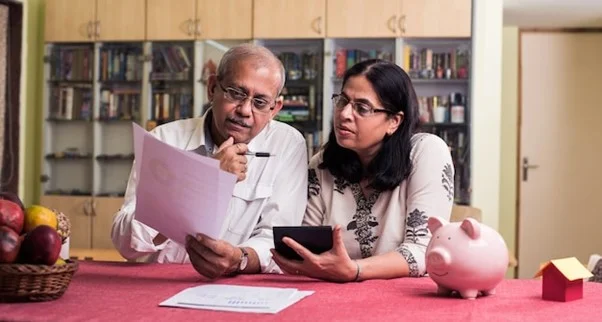Across the country, countless people are grappling with the tension that comes from financial uncertainty. Whether the cause is a lost job, rising living costs, or mounting credit card bills, it’s easy to feel like you’re standing on shaky ground. Yet even in these unsettling circumstances, you can find methods to help you beyond just surviving each month. Financial resilience offers a way to build a more secure future by learning how to bounce back from life’s curveballs with greater confidence. In this article, we’ll explore ways to develop financial resilience to keep you on track and in control of your financial independence.
Contents
Understanding Financial Resilience
Financial resilience starts with a mindset, a belief that while challenges may come, you can create strategies to weather them and even come out stronger. Part of this understanding involves looking at the bigger picture. It’s easy to get caught in the whirlwind of daily costs like rent, groceries, childcare, and medical bills, without pausing to consider how each financial decision affects you in the long run. Building resilience requires stepping back to examine where your money goes and how to make each dollar work harder. It also means maintaining a sense of calm and adaptability when the going gets tough. A resilient individual is better at figuring out alternative routes, like seeking additional training for a new career or finding assistance programs, rather than freezing when faced with a sudden challenge.
Find Financial Aid and Grants

Even with the best-laid plans, there may be times when you need external support. That’s where financial aid and grants can come into play. Don’t consider them as a sign of failure as they’re simply another resource in your arsenal. In uncertain times, especially during national economic downturns or personal crises, government agencies, nonprofits, and local community organizations often step up to offer various forms of relief, including free grant opportunities for individuals who need extra help staying afloat.
Government assistance can include unemployment benefits, rental support, or food subsidy programs, all designed to keep households afloat during tough seasons. Community agencies frequently have funds allocated for utilities or childcare, ensuring your immediate needs don’t go unmet. Nonprofits, on the other hand, might focus on specific areas like healthcare or education, offering grants or scholarships to cover partial or entire costs. There’s also the possibility of finding specialized funding that matches your situation, whether you’re a single parent, a veteran, or someone who has experienced a natural disaster.
Manage Debt Strategically
Debt often feels like an anchor dragging on the back of your boat, especially when your income is shaky. Yet debt can be managed, sometimes even leveraged if approached wisely. Rather than letting it weigh you down, think of debt as something that needs a thoughtful plan.
One way to tackle debt is to concentrate on any balances with notably high interest rates. Credit cards and payday loans, for instance, can balloon if left unattended, since interest compounds each month. When you systematically pay more than the minimum on these types of debts, you’re not only chipping away at what you owe but also saving on the extra fees that could be eating into your budget. Another strategy is to look into consolidating multiple debts into a single loan with a lower interest rate. While this doesn’t magically erase what you owe, it can make the repayment process simpler and often less expensive.
Building an Emergency Fund

Few things provide peace of mind quite like having an emergency fund at the ready. Think of it as a personal safety cushion that prevents you from spiraling into debt when unexpected events pop up. Emergencies can range from minor setbacks, like car repairs or a broken home appliance, to major life changes such as an illness or sudden job loss. Having some money stashed away helps you tackle these events without scrambling for a short-term loan or maxing out a credit card.
A good starting goal might be to accumulate a few hundred or a thousand dollars, which can already make a difference in handling urgent bills. Over time, you can grow this fund to cover three to six months of your essential expenses, which adds a whole new level of security. The best approach is to treat saving as a non-negotiable part of your routine. Automating transfers from your checking account to your savings account can make this process nearly painless. Instead of relying on self-discipline each month, you let technology do the heavy lifting.
Creating a Realistic and Flexible Budget
A budget doesn’t need to be a joy-killer. In fact, done right, it’s more like a road map that shows you where you’re headed financially and how to get there without running out of gas. Rather than thinking of it as a rigid set of rules, try viewing it as a guide that you can adjust when circumstances change.
The first step is to track your spending for a month or two. While it might be tedious to record every coffee or streaming subscription, seeing the raw data can be enlightening. You may notice patterns, like unexpectedly high dining-out costs, that you can scale back on without feeling a major impact on your life. Once you have a sense of where your money goes, prioritize your must-haves like housing, utilities, healthcare, and transportation, before factoring in extras like entertainment or travel. This helps ensure you can handle your core expenses while still leaving a little room for enjoyment.
Increase Savings

Securing your financial future often means looking for ways to ramp up your savings while also exploring new avenues for bringing in money. Small steps can add up significantly over time. Even a modest increase in the amount you set aside each month can lead to larger gains in the years to come, especially if you place those funds into interest-bearing accounts or investments.
One trick is to automatically funnel any salary increases, bonuses, or tax refunds directly into savings or retirement accounts. That way, you won’t even feel the pinch, and you’ll reap the benefits of disciplined saving. Reducing everyday expenses, such as by negotiating lower insurance premiums or trimming underused subscription services, can free up cash that you can redirect toward savings. The earlier you start saving, the more you can leverage compound interest, which helps your money grow faster over time.
Letting Go of Liabilities and Non-Essentials
Building resilience sometimes means taking a hard look at what you own and whether certain items are truly serving your life and financial goals. It can be surprising to discover how many belongings quietly siphon money for maintenance, storage, insurance, or monthly payments. Gaudy furniture, unused vehicles, and recreational equipment often fit into this category, especially if you’re not getting regular use out of them.
Selling such assets not only puts cash in your pocket but also curbs the ongoing costs that come with them. Letting go of items that don’t add genuine value can be liberating. It’s an opportunity to lean into a more minimalist lifestyle if that appeals to you. The extra funds you earn from selling can go directly toward paying off high-interest debt or boosting your emergency savings. Even smaller-scale items around the house like electronics you’ve upgraded from or furniture cluttering your garage could find new life with someone else while providing an immediate financial benefit to you.
Conclusion
Financial resilience is built through a series of decisions that collectively create a stronger, more flexible safety net. What matters most is choosing to be proactive rather than reactive. By regularly revisiting your finances, and checking in on debts, savings, and future goals, you keep your plan current with your evolving life circumstances.
Over time, these habits become second nature, and a resilient approach to money starts to feel like the default. The payoff is a life with fewer financial shocks and more opportunities, where you can say yes to the things that truly matter without constantly worrying about the next setback.

Sarah Wilson, an accomplished writer and seasoned blogger, weaves compelling narratives that transport readers to new and uncharted worlds. With a talent for vivid storytelling and thoughtful insight, her work leaves a lasting mark, enchanting both the imagination and intellect.
